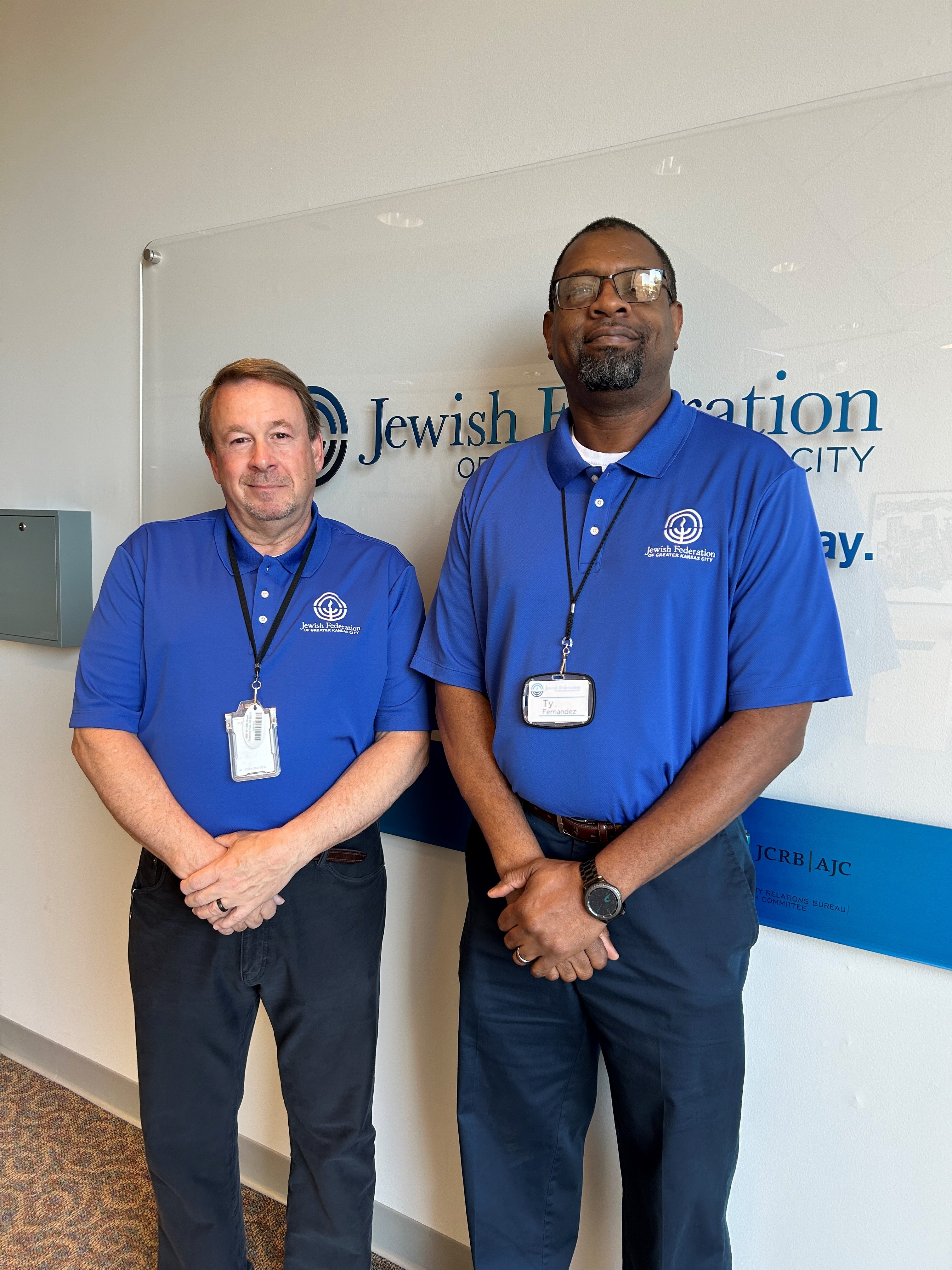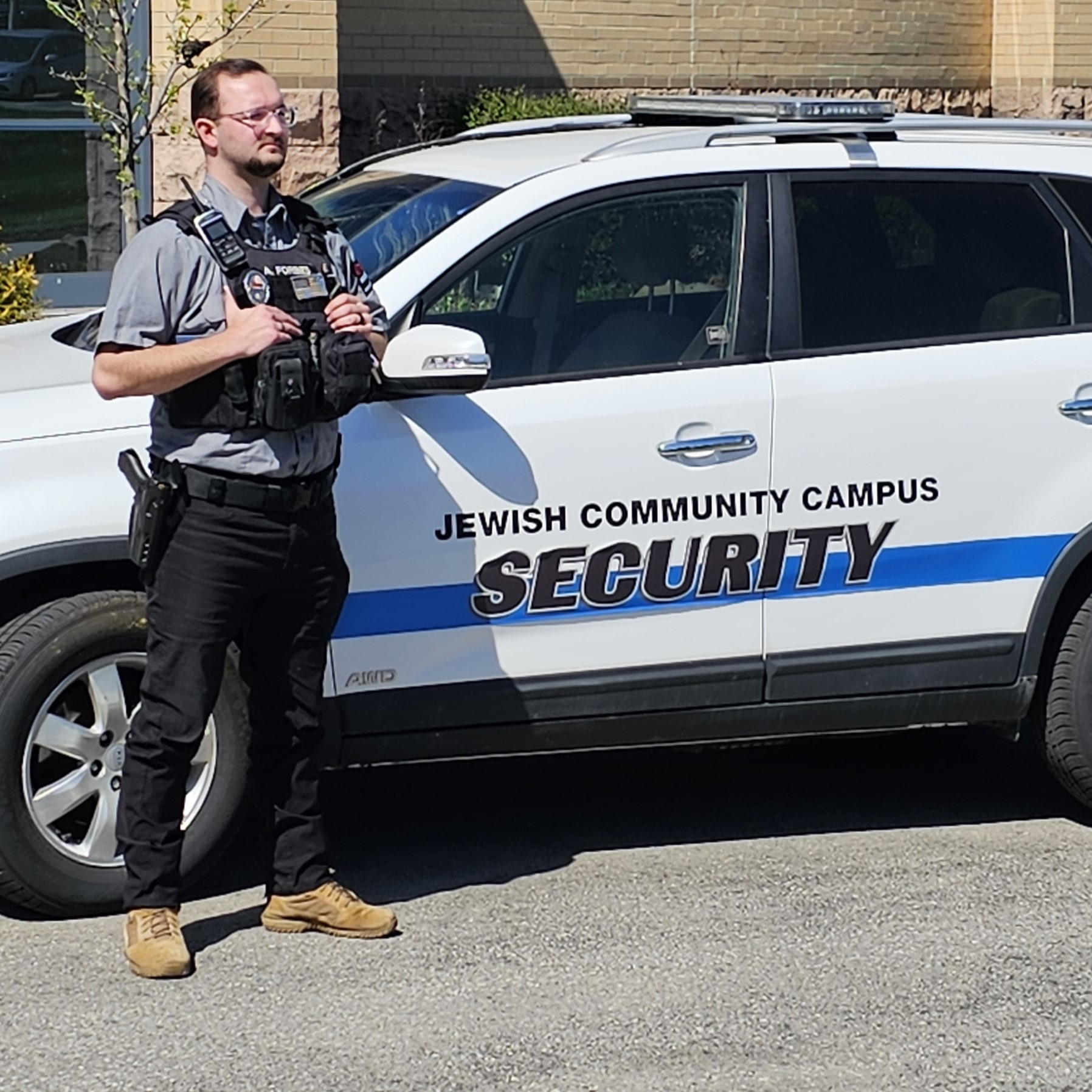For the greater Kansas City Jewish community, everything changed on April 13, 2014, when an antisemitic gunman shot and killed two people at the Jewish Community Campus and another at Village Shalom.
Jewish community security became an immediate and important issue. Ten years later, the Jewish community has a comprehensive, layered, best-practices approach to security. This effort is led by the Jewish Federation of Greater Kansas City, which works in close partnership with Jewish partner agencies and congregations; local, state and federal law enforcement; and the Secure Community Network, the official security and safety initiative of the organized Jewish community in North America.
“The safety and security of our community and all who gather in our spaces is our top priority,” said Jay Lewis, Jewish Federation president and CEO. “Our community should be incredibly proud of the security program we have built thanks to the efforts of our professional and volunteer leaders, and, of course, our very generous donors. We are committed to consistently enhancing these efforts as well as continuing to strengthen our partnerships locally and nationally.”
Jewish Federation alone has raised roughly $11 million for community security — with the Menorah Heritage Foundation, a local family foundation and Jewish Federation as a core of key funders alongside many community benefactors and partners. This allows for things like employing a community security director and assistant community security director, contracting with a security company to have trained armed guards on site every day at the Jewish Community Campus, implementing technology ranging from the SafeDefend emergency notification and response system to security cameras and license plate readers, and upgrading physical security in a variety of ways at the Jewish Community Campus.
“Since the tragedy in 2014, Federation, as the convener of the community, has made this a priority,” said John Isenberg, a past Federation Board chair. “Personally, I have allocated time, talent and treasure to ensure that our community is as safe as possible… in these times of escalated antisemitism, it’s more important than ever that the resources are available to meet this need.”
Federation also has worked collaboratively with partner agencies and congregations to secure more than a million dollars in federal grant funding from the United States Department of Homeland Security via the Nonprofit Security Grant Program. These funds have been used to enhance access control and security at Jewish organizations and congregations across the Kansas City metro on both sides of the state line.
“I’m proud to serve the Kansas City Jewish community and provide guidance to all types of community organizations to help achieve safer spaces and strong security practices,” said Chuck Green, director of community security. “This includes assisting agencies and congregations in making the case for federal funds for additional security features.”
State funding for Jewish community and nonprofit security is another area where Federation is seeing progress, partnering closely with the Jewish Community Relations Bureau | American Jewish Committee to help advance budget proposals in Kansas and with the Anti-Defamation League to help advance proposed legislation in Missouri.
Besides fundraising, over the past couple of years — especially after the Colleyville, Texas, hostage situation at a synagogue — Federation has focused on making different types of security training available to the staffs, boards and volunteers or members of various Jewish organizations and congregations. Most recently, Green and Assistant Director of Community Security Ty Fernandez have done training sessions at Congregation Beth Shalom and The Temple, Congregation B’nai Jehudah.

“As part of training, the staff and leadership of The Temple, Congregation B’nai Jehudah had Chuck and Ty come speak with us to help prepare for various situations that could occur in today’s world,” B’nai Jehudah Executive Director Amanda Morgan said. “We are grateful to the Jewish Federation for making security training available and easily accessible to our congregation, and encourage other organizations to reach out for this type of training as well.”
In addition, the Federation regularly convenes community leadership and reviews crisis management and communication protocols and procedures. Jewish community events — on Campus and off — get discussed regularly to ensure that security measures are appropriate given the event type, size and location. This type of planning, preparation and partnership allows hundreds and sometimes even thousands of people to gather safely.
“Participation in Jewish life is critical to a vibrant Jewish community, and our goal is that everyone feels comfortable participating, regardless of place or space,” Lewis says.
Kansas City’s Jewish community is now seen not only as one struck 10 years ago by tragedy, but also as a community that can be a model to others in terms of its security program and relationship with law enforcement. Green has recently been a featured speaker on a national webinar about Jewish community security, and he has continued to partner closely with Overland Park police, who have been extra supportive in the months since the Oct. 7 Hamas attack on Israel and resulting uptick in antisemitism worldwide.




